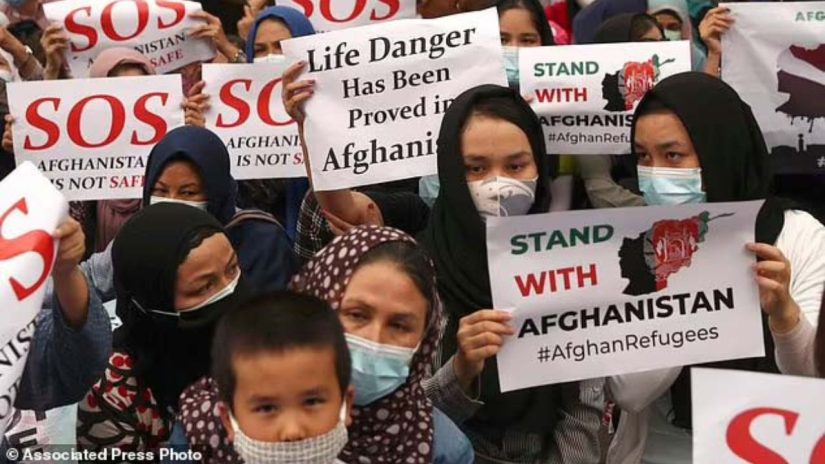
Angie Wuysang
Hazara refugees in Indonesia experience discrimination and pressure in terms of expressing their distinctive religiosity. This was one of the main points presented by Dr. Realisa Masardi at the ICRS-CRCS Wednesday Forum at the UGM Graduate School on April 24, 2024.
Dr. Masardi, a lecturer at the Universitas Gadjah Mada Department of Anthropology, conducted multisite ethnographic research on Afghan refugees in four cities for 14 months, and specifically focused on the various ways refugee youths contemplate their religious identity and navigate Indonesia’s complex religious sphere.
As of December 2023, UNHCR recorded that the number of refugees registered in Indonesia reached approximately 12,295. They come from Afghanistan, Iraq, Somalia, Myanmar, and other countries. Of these, more than 70% were adults and 27 percent were children. The fact is that of the 3.555 children registered with UNHCR, 227 children are unaccompanied by parent or adult relative and 106 children are separated from their parents. The Presidential Regulation (Perpres) No. 125/2016 has provided a corridor for the handling of foreign refugees in Indonesia. The regulation, although it still has various limitations in fulfilling the basic rights of refugees such as the right to education, has nevertheless provided a legal basis for the protection of foreign refugees who arrive in Indonesia.
Masardi observed that refugees and asylum seekers developed various tactics, strategies, and manoeuvres facing different arenas, actors, and circumstances. In her research, she specifically focused on what she called the four arena of social navigations, namely; refugee management system, refugee economics, relationship with locals in Indonesia, and global youth cultures. She also perceived how Indonesian media from 2006 to 2016 framed and narrated the identity of refugees in negative language. In 2006-2008, they were dubbed illegal immigrants by various media in Bali and East Nusa Tenggara. In addition, the media in Pekanbaru, Medan, and West Java heated the sentiments by calling the refugees gigolo, Shiah missionaries, and ISIS-related groups. The 2015 news, as Masardi observed, still continued the sentiment with the addition of trouble makers, prostitutes, and transactional marriages in portraying the refugee population.
Refugee life indeed provides many associations: compression, poverty, harassment, and deprivation. And this is also experienced by Hazara refugees including the youth, as Masardi recounted in her presentation. The Hazaras are one of the minority ethnic groups in Afghanistan with most of them being Shia Muslims, which turns out to be problematic when they have to deal with Indonesian Sunni Muslims. This discrimination against them was further emphasized when Bima Arya Sugiarto, Mayor of Bogor, banned Shia believers from commemorating Asyura in 2015 (Saudale and Marsiela, 2015). The West Java, according to Masardi’s observation, is known as one of the most intolerant provinces in Indonesia. In fact, most of the refugees are settled in Cisarua, Bogor, in West Java. It is an irony then that the government places Shia refugee groups in areas that are statistically the most intolerant.
The Hazara youth have been reinventing and navigating life within Indonesia’s religious sphere. Some try to keep a low profile by avoiding invitations to pray together, some try to compromise with Sunni practices, some try to “borrow” a Christian identity, and some even access Christian communities where they feel accepted as newcomers. A young man named Reza is now even a keyboard player at a church in Jakarta. As he confessed to Masardi, “Can you imagine? Music is haram in my country. I went to jail for that. I was arrested for playing music.” However, in Masardi’s perception, in their navigation as youth refugees, there are some reflective points that can be drawn. Among other things, they become skeptical of religion. Persecusion, terror, and the unending wars in their countries occur due to religious radicalism and impacts their disassociation from any religious beliefs.
It is an undeniably complex journey for them as refugees negotiating their identity in Indonesia. But regardless of the severity of the situation, they are contemplative and find opportunities to determine what religion means to them.
